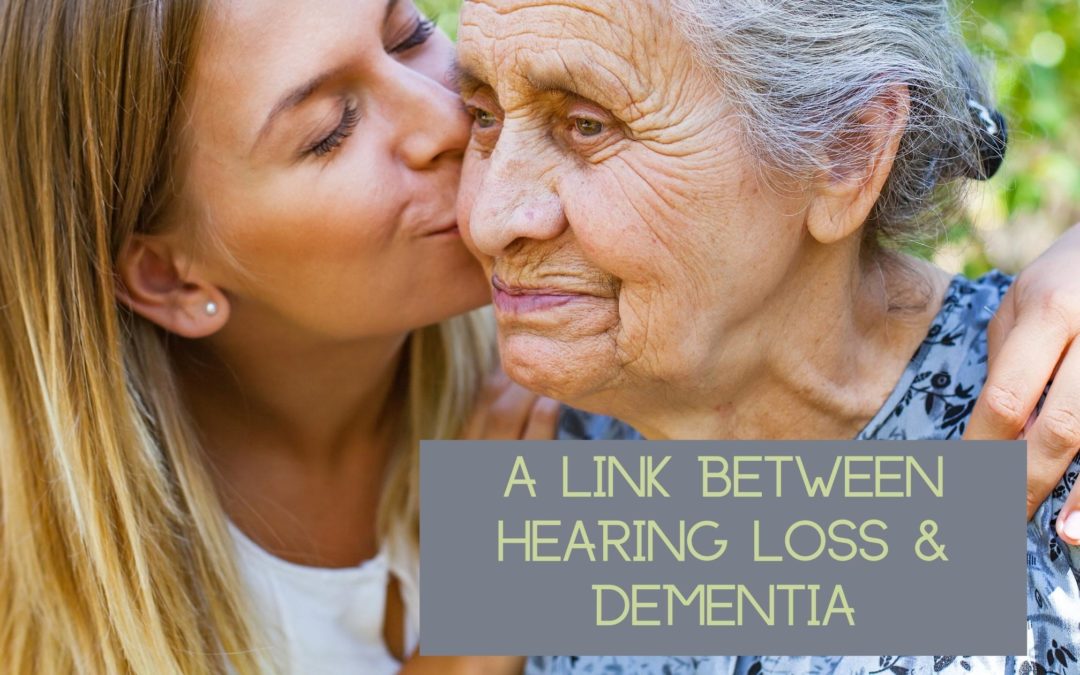Did you know that hearing loss can increase the risk of dementia? Nearly 50 million Americans have hearing loss, and this could make them more likely to face cognitive decline and dementia. Hearing loss becomes more common with age. In fact, two out of three seniors over 70 have hearing loss. So what’s the link between hearing loss and dementia, and is there anything we can do about it?
Hearing Plays a Role in Brain Health
Many people think that hearing loss isn’t a big deal. Sure, you miss sounds here and there, but you don’t think it’s impacting your health. But the truth is that hearing loss plays a big role in brain health. In one recent study, Dr. Frank Lin and his colleagues looked at the connection between hearing loss and dementia. They had nearly 2,000 participants, most over the age of 75. During several years, they tested hearing abilities and cognitive abilities like memory, concentration, and planning skills.
After six years, the seniors who had hearing loss at the beginning of the study had a 24% higher rate of cognitive decline. They scored much lower on cognitive tests than the older adults without hearing loss. This study showed that hearing loss can actually speed up cognitive decline.
In another study from 2011, Dr. Lin looked specifically at dementia. Similarly, this study found that hearing loss can lead to dementia. Compared to adults with normal hearing, adults with hearing loss had almost triple the risk of developing dementia.
How Does Hearing Loss Lead to Dementia?
Researchers say that hearing loss can lead to dementia in several ways. One link is cognitive load. Our brains have a limited capacity, and we can only process a certain amount of information. If you’re living with untreated hearing loss, much of your cognitive load is taken up with hearing. You use a lot of effort straining to hear. Then a lot of brainpower goes into interpreting the sounds you heard, as well as guessing about any missing information. Basically, when you put a lot of effort just into hearing, you don’t have enough capacity left over to perform more complex cognitive tasks like concentration, logical problem solving, or even encoding what you heard into memory.
Living with untreated hearing loss can also lead to changes in the brain. Auditory areas in the brain that aren’t being used can start to shrink or die. When these cells don’t get enough stimulation from the ears, it can lead to less gray matter in that part of the brain, increasing cognitive decline.
Treating Hearing Loss Can Reduce Cognitive Decline
While the research shows that hearing loss can lead to cognitive decline, there is a silver lining. Treating hearing loss can improve brain health and reduce cognitive decline. Hearing aids can even decrease your risk of dementia or Alzheimer’s disease.
That’s because hearing aids help you stay socially and mentally active. Treating hearing loss helps your brain hear more of the sounds around you. Auditory areas of the brain receive more input and are less likely to shrink. Hearing aids also reduce listening fatigue. You’ll be able to hear clearly, and still have energy left over for other cognitive tasks.
If you notice any early signs of hearing loss, seek treatment early! The sooner you treat hearing loss, the more you can help your brain. Cognitive decline is usually a one-way street. It’s hard to regain the cognitive skills that you’ve lost, so treating hearing loss as soon as possible is the best thing you can do for your brain.
Book a Hearing Test
Not sure if you have hearing loss? Hearing loss can be a gradual process. You don’t wake up one day and suddenly have severe hearing loss. Instead, the daily changes might be impossible to detect. Your brain slowly adjusts to your new hearing, making it even harder to spot.
That’s why we recommend annual hearing tests for older adults. The best way to monitor your hearing health is with regular hearing tests. You’ll notice as soon as your hearing changes so you can get the right treatment right away. Call us today to book your next hearing test! Find out more about your brain health and your hearing health with a comprehensive hearing test.


